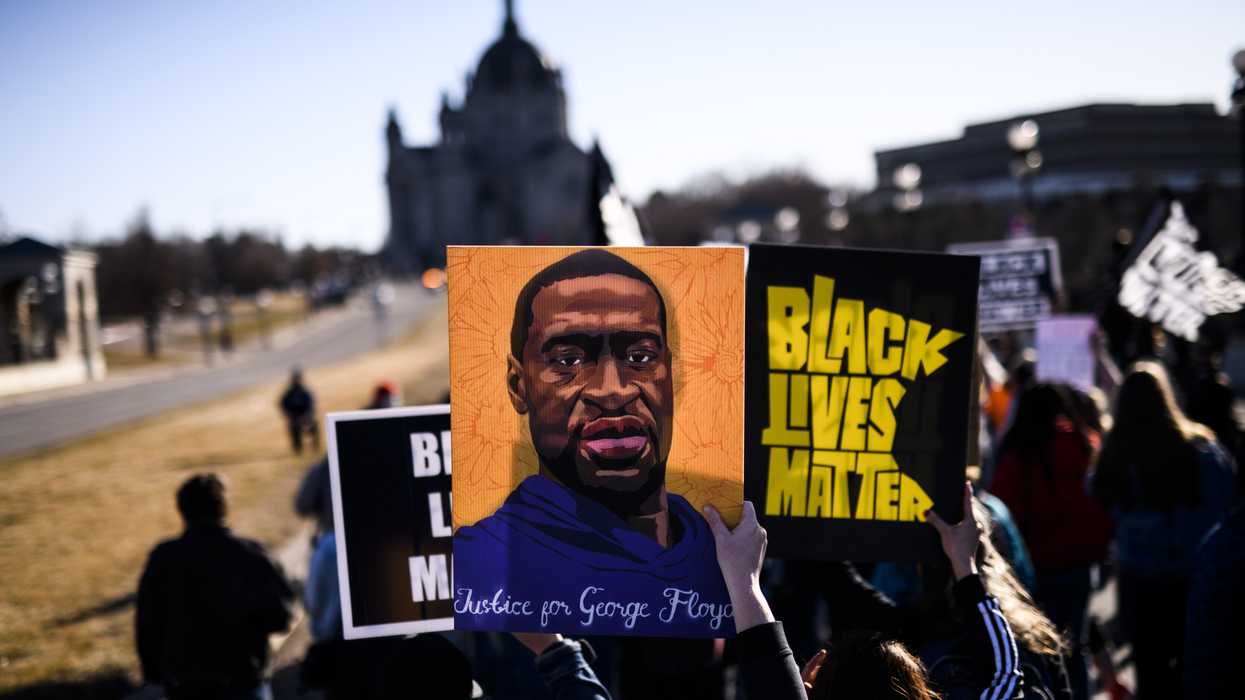As a Black American woman and an educator, I am compelled to examine the forces that led to Donald Trump’s 2024 victory and its impact on our increasingly multiracial democracy. Democracy—derived from the Greek word demokratia, meaning “rule by the people”—is now under attack. With a deep sense of historical awareness, moral clarity, and an unwavering commitment to justice, I must underscore that democracy, as we have long understood it, is not just a system of governance. Democracy is a promise: a promise that every voice matters, that justice is not reserved for the “few” or the privileged, and that freedom is not a selective right. In this moment, the promise is being rewritten and redefined in ways that exclude rather than include and that silence rather than empower.
Attacks on Diversity and Inclusion
Much of what we are witnessing now was foreshadowed in the Heritage Foundation’s 900-page policy blueprint Project 2025, which aims to radically expand Trump’s presidential powers and reorganize the whole of the federal government. Many of Trump’s recent actions are reflecting Project 2025’s proposals. On his first day in office, he signed a record number of executive orders that target marginalized communities.
Among these executive orders was the elimination of DEI (Diversity, Equity, and Inclusion) and DEIA (Diversity, Equity, Inclusion, and Accessibility) programs across the federal government. Federal agencies have already begun canceling DEIA-related contracts, scrubbing resources from their websites, and halting training sessions. The irony of Trump signing this order on Martin Luther King Jr. Day was not lost on those of us committed to a multiracial democracy.
Many of these executive orders target immigrants and immigrant communities. Mass deportations and raids are targeting schools, hospitals, and places of worship. He is attempting to dismantle the nation’s asylum system and end birthright citizenship.
In the realm of reproductive rights, Trump has signed executive orders prohibiting federal funds from supporting abortion services, both domestically and abroad. US foreign aid policy prohibits funding to overseas nongovernmental organizations that perform, refer, or discuss abortions, even if using their own money.
Trump’s executive actions have also attacked LGBTQ+ rights. On his first day as president, he ordered the removal of LGBTQ+-specific pages from government websites and rescinded a Biden-era policy allowing transgender people to openly serve in the military. During his inaugural address, he declared that there are “only two genders, male and female.”
The extremity of these policies prompted Bishop Mariann Budde to take the unprecedented step of directly addressing Trump from the pulpit of the National Cathedral. As she led the inaugural prayer service, she pleaded:
Mr. President, millions have put their trust in you. In the name of our God, I ask you to have mercy upon the people in our country who are scared now—gay, lesbian, and transgender children in families of all political beliefs who fear for their lives.
Beyond these extreme policies and orders, Trump’s administration is defined by its lack of diversity and extreme wealth concentration. His proposed cabinet is 81% White, making it the least diverse since Ronald Reagan. The wealth of the administration and its associates, like Elon Musk, exceeds $450 billion. This net worth concentration aligns with oligarchy, a system where the ultra-wealthy shape policies to benefit themselves.
Echoes of History
Trump’s rhetoric and policies may appear to be outliers in the post-civil-rights period of American history, herstory, and theirstory, but they fit within a familiar pattern from previous eras. Whenever marginalized communities have fought for constitutional rights, they have been met with legal, legislative, and social backlash, alongside efforts to suppress the discussion of their struggles.
A recurring false narrative accompanies this backlash: the idea that granting rights to marginalized groups somehow diminishes the rights of others. This belief has fueled opposition movements from enslavement to Reconstruction, from women’s suffrage to the Civil Rights Movement, and now in the fight for LGBTQ+ rights.
Education has long been weaponized to maintain social hierarchies. Enslaved people were forbidden from learning to read or write because literacy was a direct threat to the institution of slavery. Today, education is still being manipulated to change the narrative around equal rights and to limit discussions on race, gender, and other identities.
Over the past decade, local and state governments have passed laws that directly influence what can and cannot be taught and discussed in our schools. Teaching about race, gender identity, and sexual orientation has been restricted in many states. In my home state of Florida, according to curricula approved in 2023, Black people gained “personal benefit” from enslavement —a blatant distortion of history.
Democracy and education have a symbiotic relationship: one cannot exist without the other. A democratic society requires informed and open-minded citizens.
Four Steps to Preserve and Strengthen Democracy
In these challenging times, we must take four critical steps to preserve and strengthen American democracy:
1. Understand the Appeal of Trump’s Candidacy
Trump’s ability to attract key voter blocs—young people, people of color, women, and union workers—defied expectations given the extreme and, in many instances, anti-democratic nature of his rhetoric and politics.
Economic struggles rather than issues like democracy or reproductive rights were prioritized by many voters, especially younger Americans. Others may have voted with religion or cultural factors in mind while not considering the greater threats to democracy for all.
2. Engage in the Democratic Process
Protecting democracy requires more than just voting in presidential elections. It demands consistent participation at state and local levels. Writing or calling representatives, attending town halls, and advocating for policy changes are crucial actions.
3. Defend the Integrity of Education
We must resist the political hijacking of education. The banning of books, the rewriting of history, and the silencing of marginalized voices all threaten the very foundation of democracy. Our engagement in local school boards and curriculum decisions is critical.
4. Fight Not Only for Your Rights, but Also for the Rights of All Americans
Justice is not selective. Our fight must be intersectional to defend the rights of immigrants, LGBTQ+ individuals, women, and all racial minorities. As Coretta Scott King said: “Freedom and justice cannot be parceled out in pieces to suit political convenience. You cannot stand for freedom for one group of people and deny it to others.”
Trump’s second presidency marks a pivotal moment in American democracy. The expansion of executive power, the rollback of the rights of marginalized communities, and the rise of oligarchy demand that we remain vigilant, engaged, and proactive! We must understand voter behavior, stay active in democratic processes, protect education, and advocate for the rights of all, so we can forge a future that truly reflects the ideals of equality, justice, and democracy.
Understanding the 2024 Election: A Call to Action for Inclusive Democracy was originally published by the Charles F. Kettering Foundation and is shared with permission. Johnnetta Betsch Cole is a noted anthropologist, educator, author, speaker, and consultant on diversity, equity, accessibility, and inclusion in workplaces. She is the former president of both Spelman College and Bennett College and currently is a Charles F. Kettering Foundation senior fellow.




















